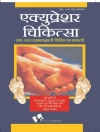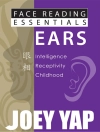We all have formed our definitions of happiness right from childhood. A lot of these perceptions are because of conditioned development, that is, they are a part of our habits due to repetitive inculcation by parents, teachers, and society in general. That is why none of us has pondered about what exactly makes us feel happy! This feeling has been left to our sub-conscience and we simply feel the happiness according to the situation we are in.
A lot of small things can bring happiness to us. For instance, just the thought of shopping or spending money tends to excite us and make us feel happy. Opportunities and new ideas also have a similar effect on us. This excited state makes us imagine things related to these incidents. For example, the perspective of going on vacation while getting an office bonus would not only make us excited but also make us plan and imagine the holiday. In fact, we would feel the bliss without actually being on the vacation itself! However, when being on the actual vacation, the excitement tends to settle down as one begins to feel contented.
Same is the case with objects. We are quite crazy about purchasing the latest cell phone, laptop, I-pod or a new car. But once we own that thing, the excitement settles down and the appeal doesn’t stay the same. The cycle of excitement begins again when another new product is launched.
Let’s pause for a while and seriously think about our domain of happiness. Is it pertained to acquiring latest objects only? Does it end at wishes being fulfilled? Is our domain of happiness limited to spending good time with family or friends only? We are so involved in this cycle of wishes that we actually forget to see what real happiness is and how it can be achieved.
The domain or definition of happiness varies for every individual as they have their own individual needs. For some people, achieving a good career path provides happiness. For some, it is their fulfillment of goals and objectives whereas bringing happiness on the face of the deprived can give some people happiness.
However, everybody doesn’t have it easy. Our income, education, family, environment, society, and friends all affect our domain of happiness. We might not always have the desired income needed to fulfill our wishes or maybe the careers aren’t going as smoothly as we had planned. So what does it do to us? Does it burst our balloon of hope and excitement or does it renew our hopes, make us clear our visions, and set ahead for the future with new motivation? How do you react when things don’t turn out as you had planned? Most importantly, is your reaction appropriate or do you need to change your attitude and perception?












